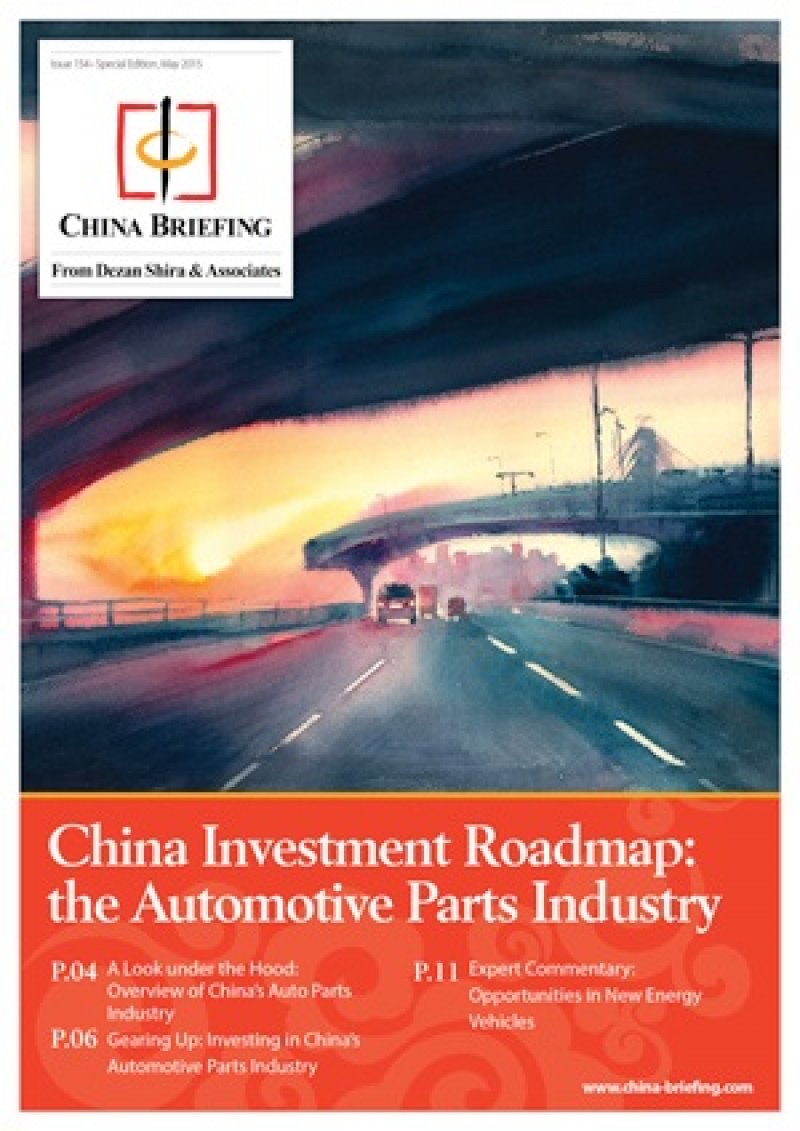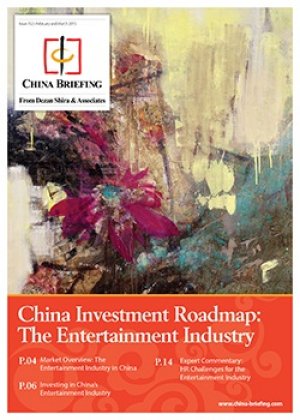What to Do When an Employee in China Gets Injured

Industrial accidents are unfortunately a common occurrence in China. No matter where the workplace is, an accident may just be around the corner. As an employer, it is therefore important to know what to do if an employee gets injured, and what would happen if a company fails to perform these duties.
Work-related injury and occupational disease are covered under China’s social security system. Every month, the employer needs to pay a percentage of the employee’s salary to a fund as part of its social security obligations. If an employee covered under the scheme gets injured, the cost of medical treatment will be paid for by the local fund.
When the employee is hospitalized, the employer must apply to the local Bureau for Human Resources and Social Security for an occupational injury assessment within 30 days. It must submit evidence of the employment relationship, the diagnosis from the medical institution and an application form. The application must include basic information about the time and place the accident occurred, and the degree of injury. Even if no employment contract was signed and the work relationship was informal, the employer would still have to submit this application.
If the employer has not made social security payments for the employee, or failed to apply for occupational injury assessment, it will have to pay for the health care costs otherwise borne by the social insurance fund. Except in the case of emergency treatment, the assessment needs to be done by a medical institution that has a service agreement with the local Bureau for Human Resources and Social Security.
![]() RELATED: China Issues Opinions on Work-Related Injury Insurance
RELATED: China Issues Opinions on Work-Related Injury Insurance
During the assessment, the employee in most cases cannot be fired. If the employment contract expires during the assessment period, the expiration date is extended till the end of the assessment. The assessment can take up to 60 days, during which the company must continue to pay the employee’s salary.
If the Bureau for Human Resources and Social Security finds that the injury or sickness is work-related, the employer must continue to pay the employee’s salary for as long as the employee is receiving medical treatment, up to twelve months. Again, during this time the employee may not be dismissed, nor if he returns to work disabled and only partially able to work due to the incident. The employer may not lower the salary during this time. If the injured employee is unable to take care of himself and needs nursing care, the employer needs to pay for this as well.
With such a potentially high cost to the employer, it is highly relevant to know what is considered a work-related injury. While somewhat clarified in recent years, China’s law is rather vague on the precise definition, leading to different standards being applied across the country. The following situations are covered under occupational injury and disease:
- Being injured in an accident at the workplace during work hours, preparing for work, or finishing up work.
- Being injured from the use of violence.
- Suffering from an occupational disease.
- Being injured while travelling for work purposes.
- Being injured in a traffic accident while commuting between home and work, through no fault of the employee.
- Dying within 48 hours after being taken for emergency treatment from the work place. This clause applies regardless of whether the death was work-related, but the 48 hour demarcation is strictly adhered to.
This does not apply if the injury or death was a result of the employee intentionally committing a crime, the employee was under the influence of alcohol or drugs or intended to harm or kill himself.
When filling in these grounds, the law will mostly look at the purpose of the activity that the employee was involved in, with time and location being secondary considerations.
A good example is the way a traffic accident on the way home is treated. The Bureau will look whether the accident occurred during a reasonable travel time from the work place directly to the employee’s home. Depending on the means of transport, a reasonable amount of time for direct travel between the workplace and home is covered. If part of the trip is not for the purpose of travel between home and the workplace, it is not covered.
![]() RELATED: China Enacts New Work Safety Law in Wake of Lethal Accident
RELATED: China Enacts New Work Safety Law in Wake of Lethal Accident
For example, if the employee leaves work and picks up the children on the way home, only the travel between the work place and the school is covered. The trip between the school and home is no longer considered to be for work purposes. Also, if the employee stops for dinner on the way home, only the time between the workplace and the restaurant is covered. However, if the employee has dinner at the company’s canteen and then directly goes home, the entire trip is covered.
A similar approach is taken for the use of violence. There was a case where a fight broke out when the employee was entertaining clients at a bar. During the fight, one of the company’s clients hit the employee with a bottle. Because the employee was entertaining these clients for work purposes, he claimed the incident was a work-related injury. However, the fight had broken out over a personal disagreement between the client and the employee, so the Bureau held that it was not a work-related injury.
Even if the injury was caused by a violation of internal safety rules, it would still be considered a work-related injury. This was ruled in a case where an employee suffered severe burns because he was having a smoke break while working with highly flammable materials. Despite the fact that the company’s safety rules explicitly prohibited smoking while using these materials, the injury was still held as being work related. The fact that the accident occurred during a break did not affect the ruling either. Having a short break during work is still considered part of work time.
From these examples, one can see that the concept of work-related injury or sickness is applied quite broadly. The costs to the employer can be quite significant, especially if the employee is hospitalized for a long time. With this in mind, investors are well advised to ensure that employees have a safe working environment.
|
Asia Briefing Ltd. is a subsidiary of Dezan Shira & Associates. Dezan Shira is a specialist foreign direct investment practice, providing corporate establishment, business advisory, tax advisory and compliance, accounting, payroll, due diligence and financial review services to multinationals investing in China, Hong Kong, India, Vietnam, Singapore and the rest of ASEAN. For further information, please email china@dezshira.com or visit www.dezshira.com. Stay up to date with the latest business and investment trends in Asia by subscribing to our complimentary update service featuring news, commentary and regulatory insight. |
![]()
 Human Resources and Payroll in China 2015
Human Resources and Payroll in China 2015
This edition of Human Resources and Payroll in China, updated for 2015, provides a firm understanding of China’s laws and regulations related to human resources and payroll management – essential information for foreign investors looking to establish or already running a foreign-invested entity in China, local managers, and HR professionals needing to explain complex points of China’s labor policies.
China Investment Roadmap: the Automotive Parts Industry
This issue of China Briefing presents a roadmap for investing in China’s automotive industry. We begin by providing an overview of the industry, and then take a comprehensive look at key foreign investment considerations, including investment restrictions, tax incentives and manufacturing requirements. Finally, we discuss foreign investment opportunities in a part of the industry that receives substantial government support: new energy vehicles.
China Investment Roadmap: The Entertainment Industry
In this special edition China Briefing Industry Report, we cast our gaze over the broad landscape of China’s entertainment industry, identifying where the greatest opportunities are to be found and why. Next, we detail some of the most important issues for foreign investors to be aware of, including legal, regulatory, and tax considerations specific to the industry. Lastly, we provide an insider analysis of the sector’s unique HR & payroll challenges.
- Previous Article Les Spécificités du Congé Maternité à Travers la Chine: Différences Régionales
- Next Article How to Restructure an Underperforming Business in China – New Issue of China Briefing Magazine















